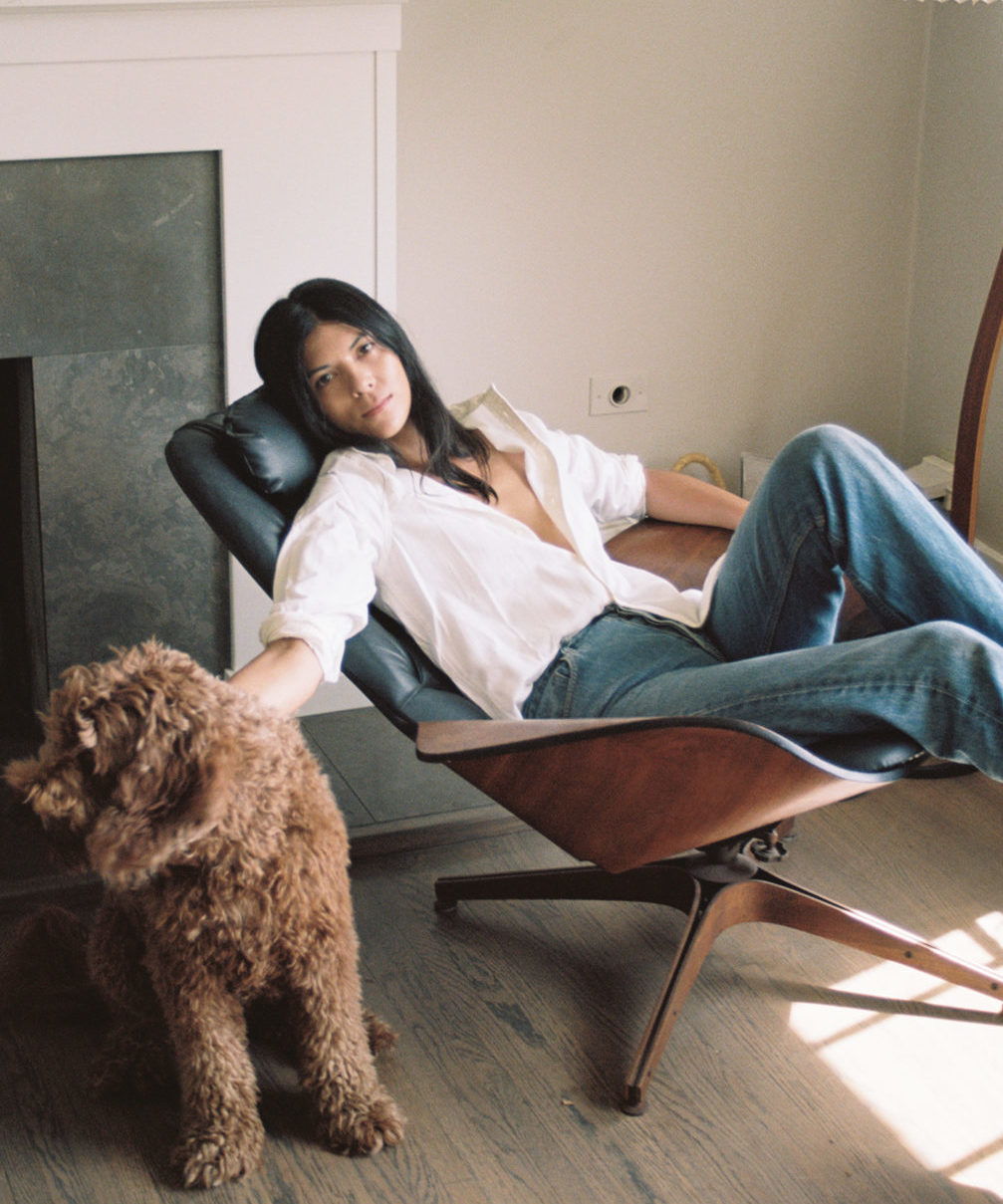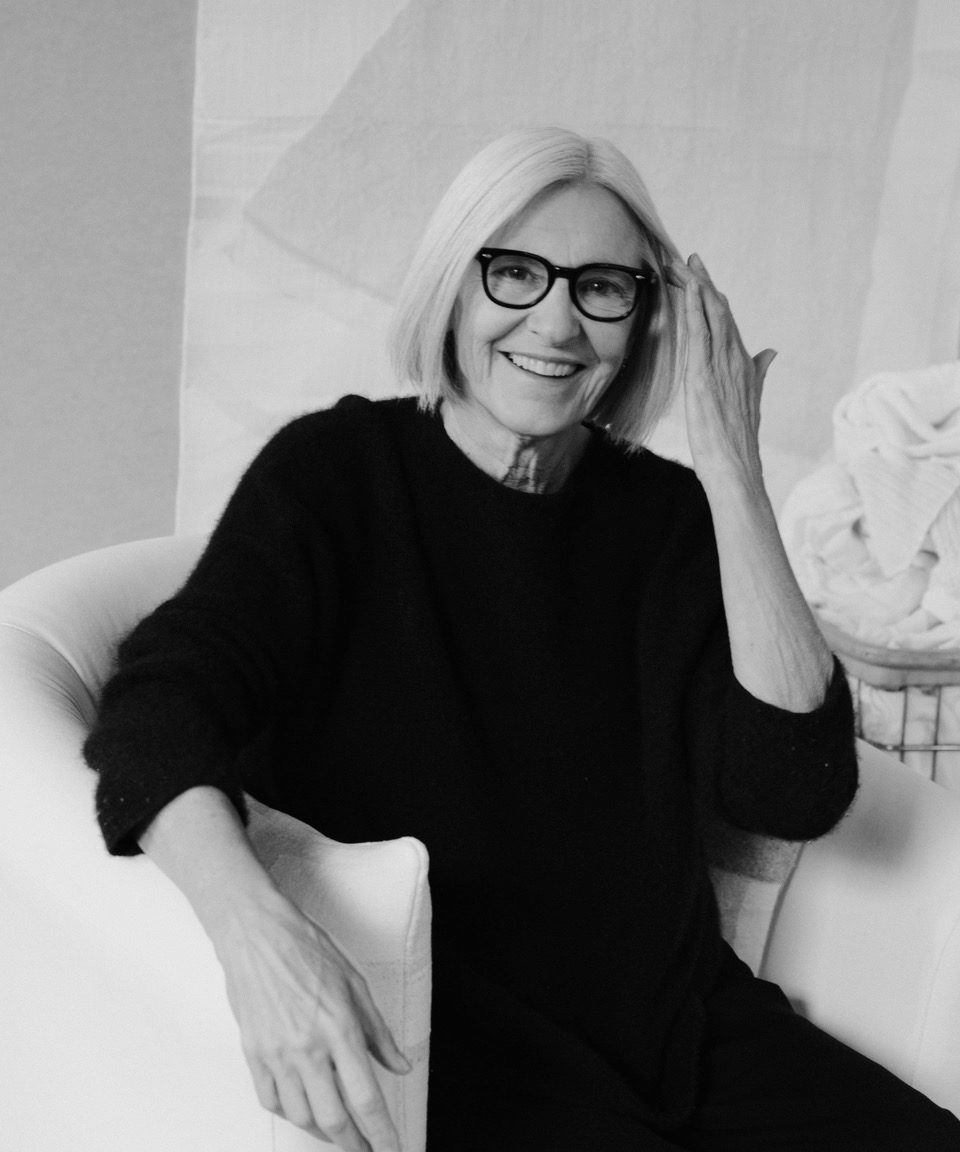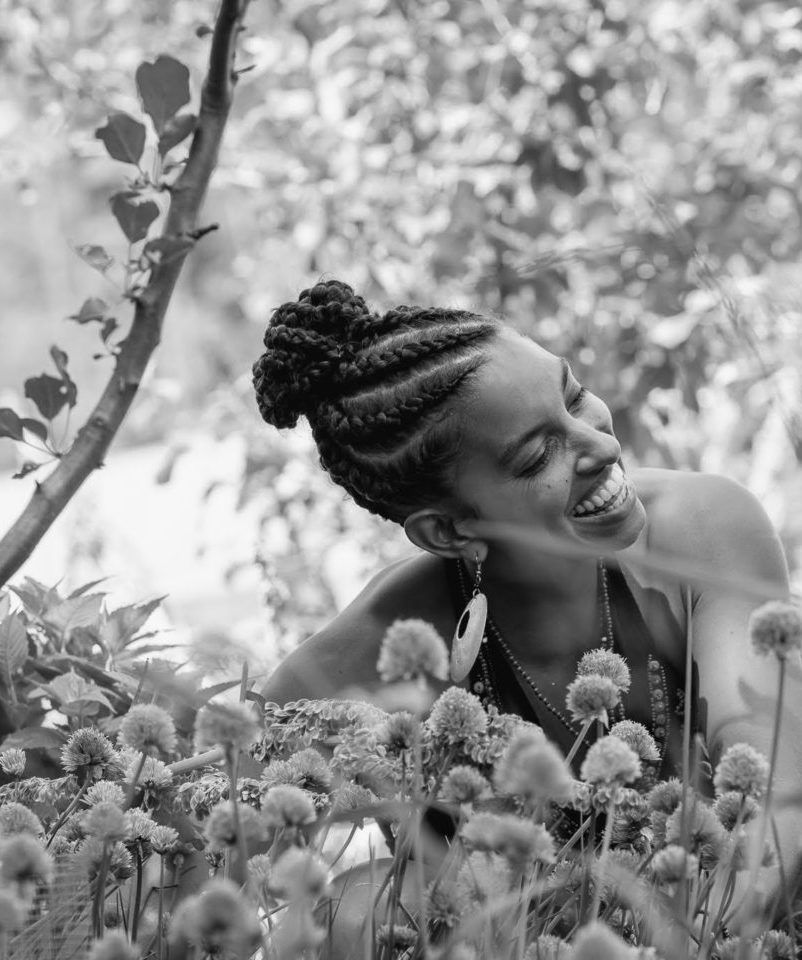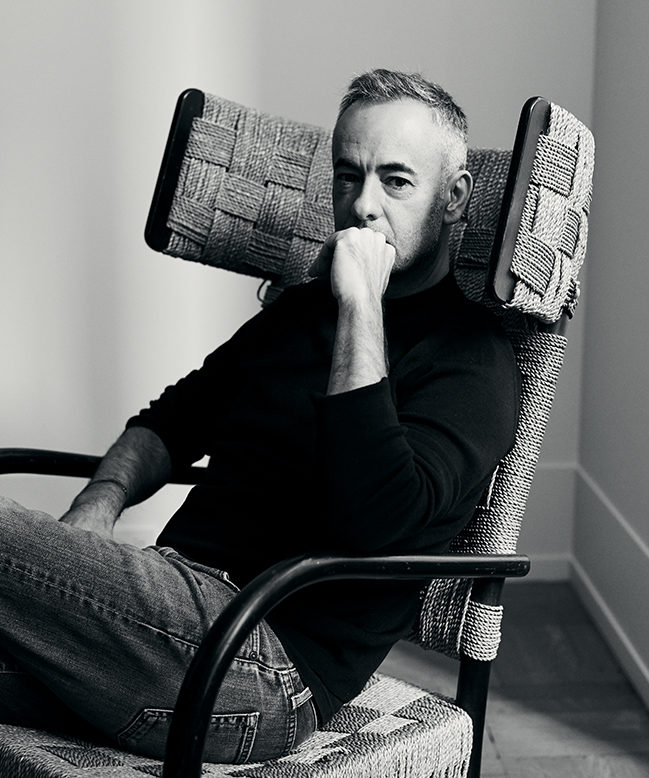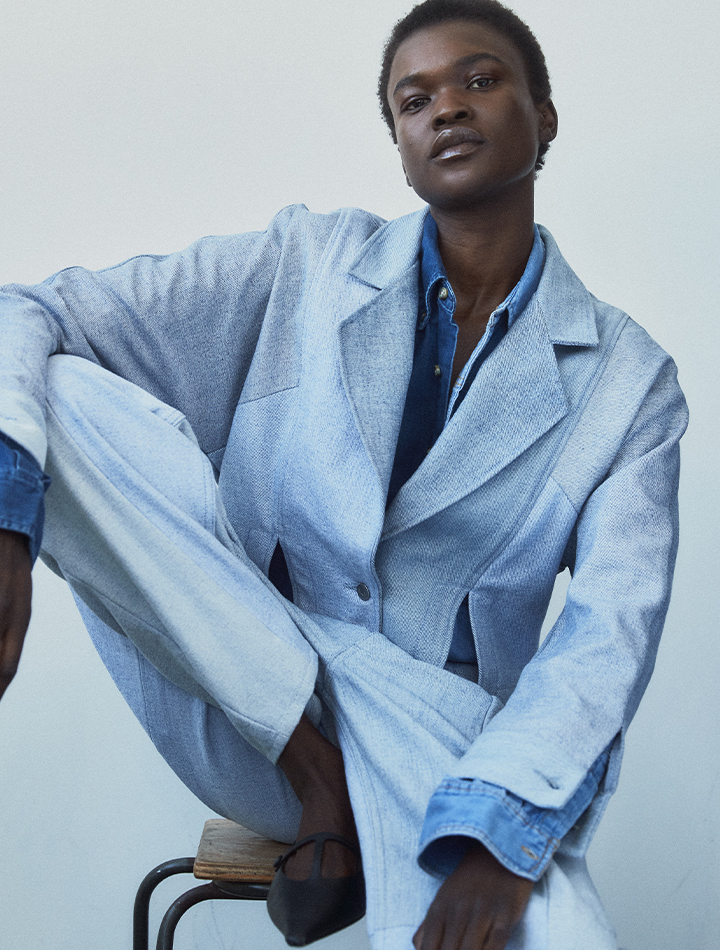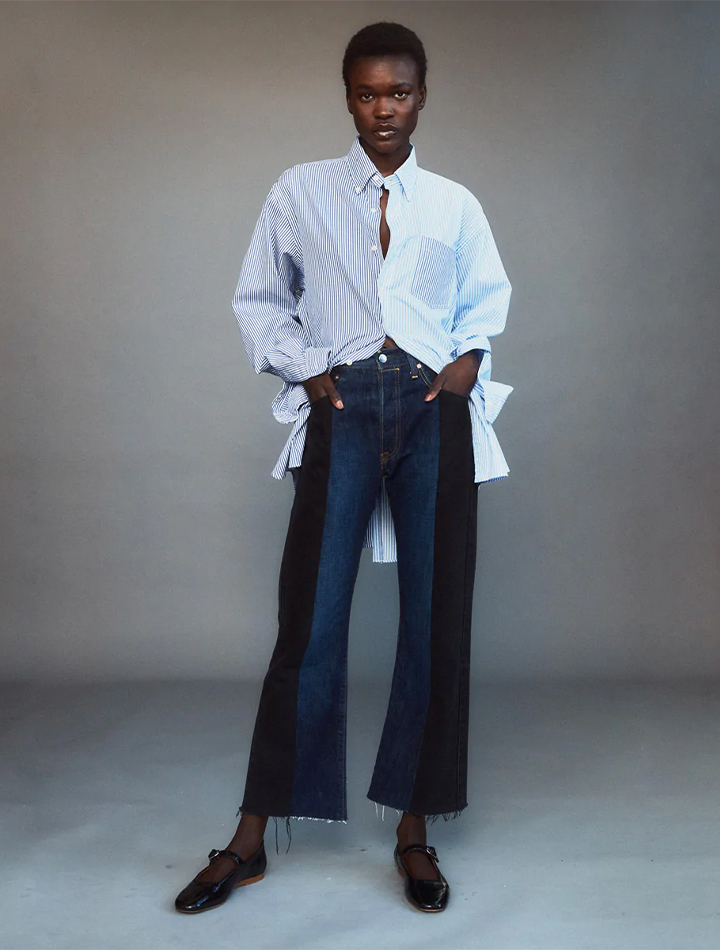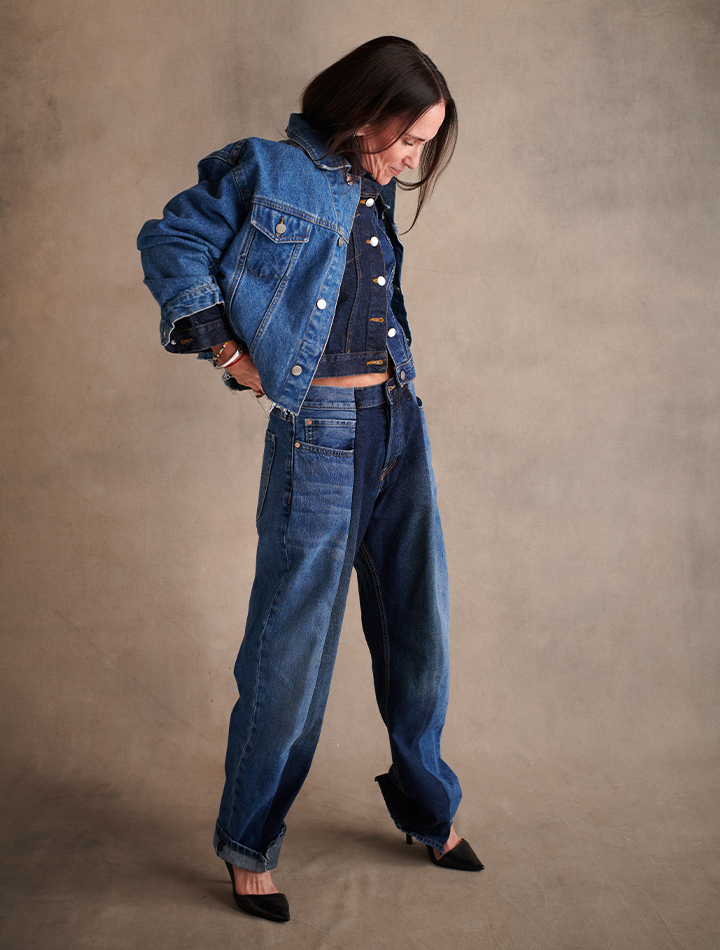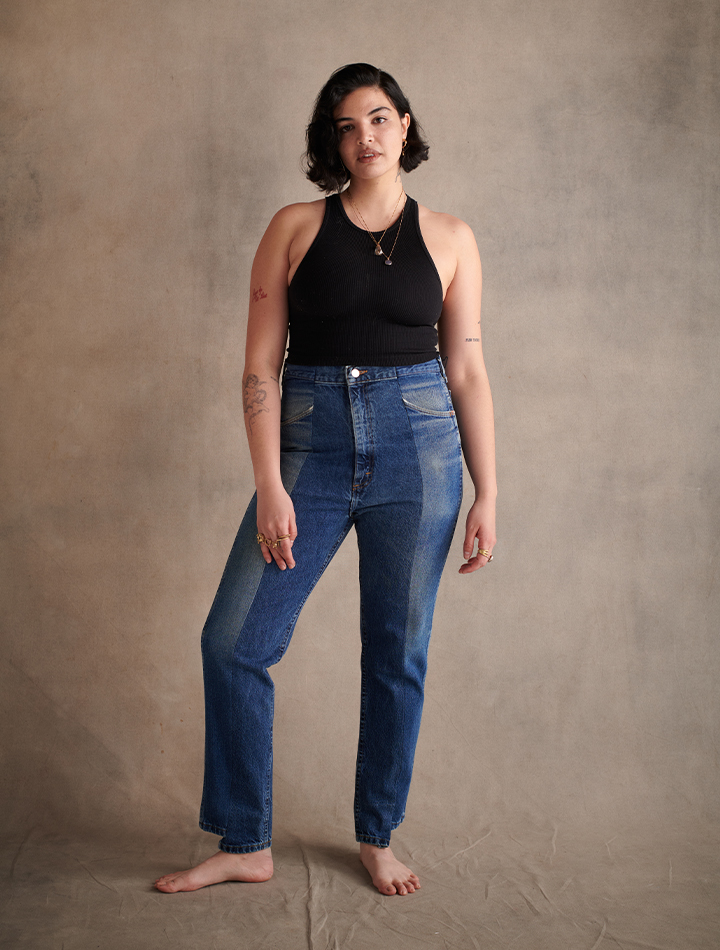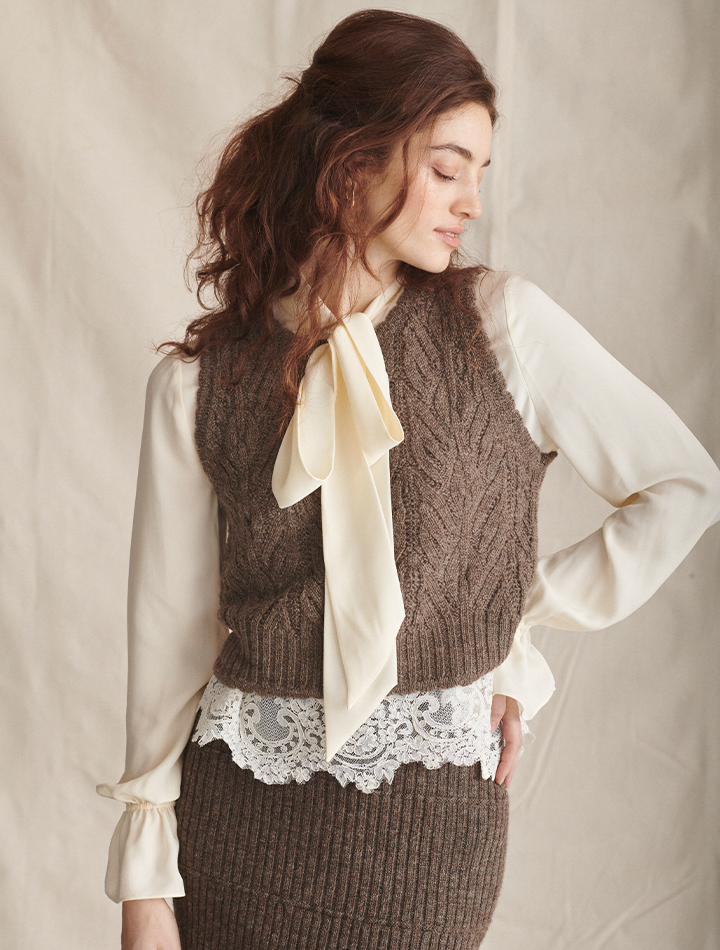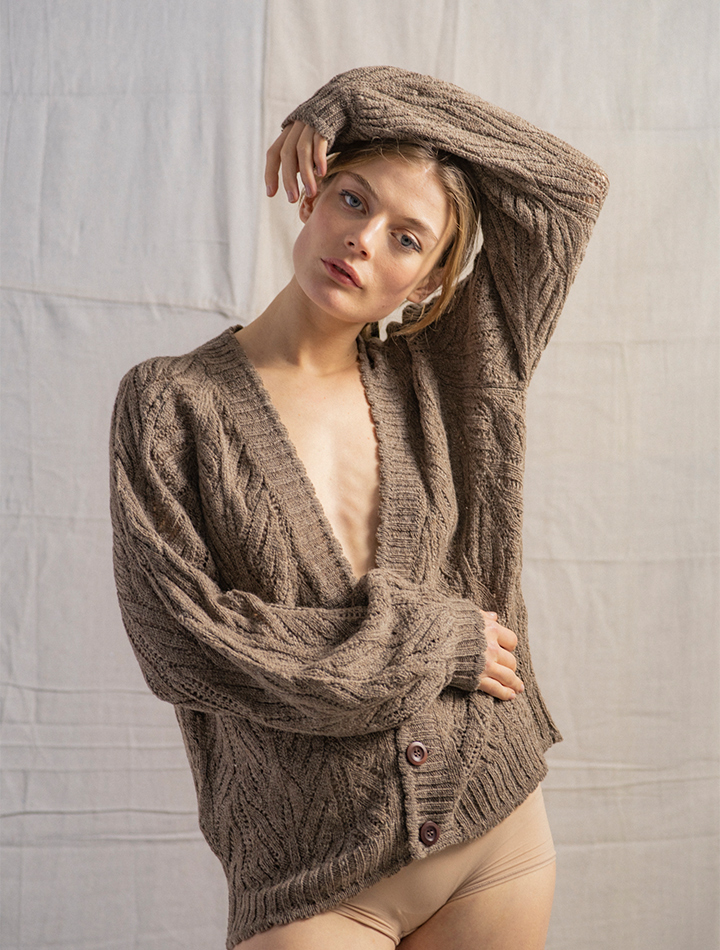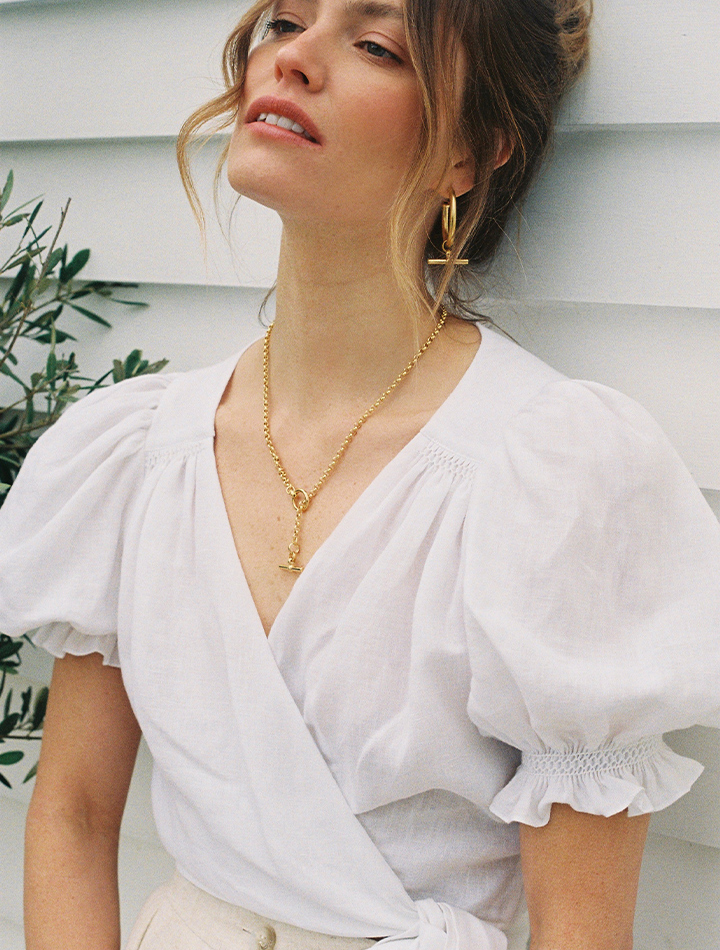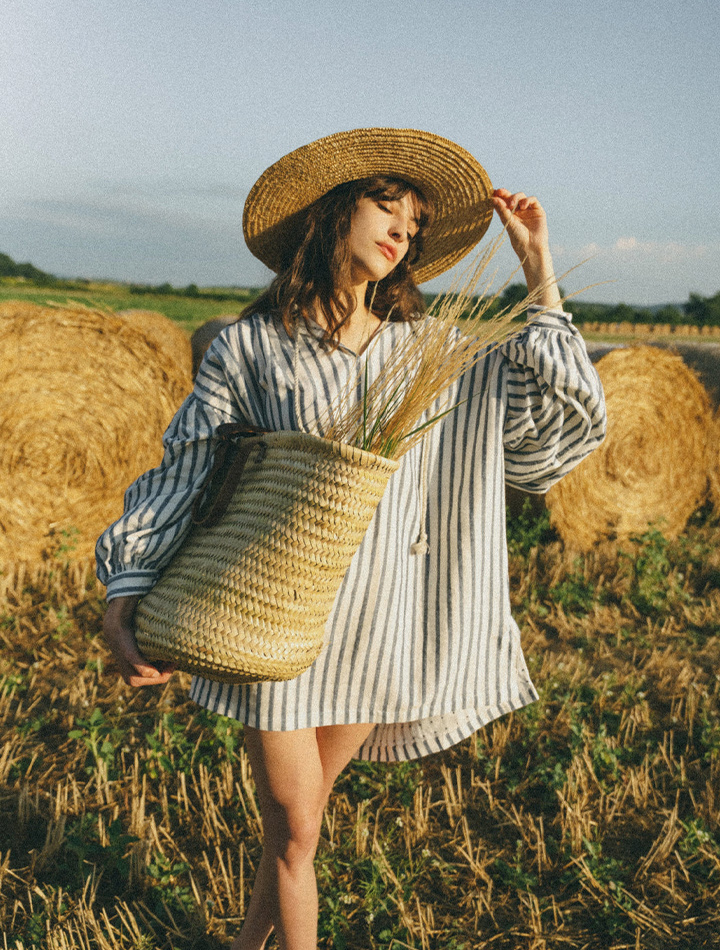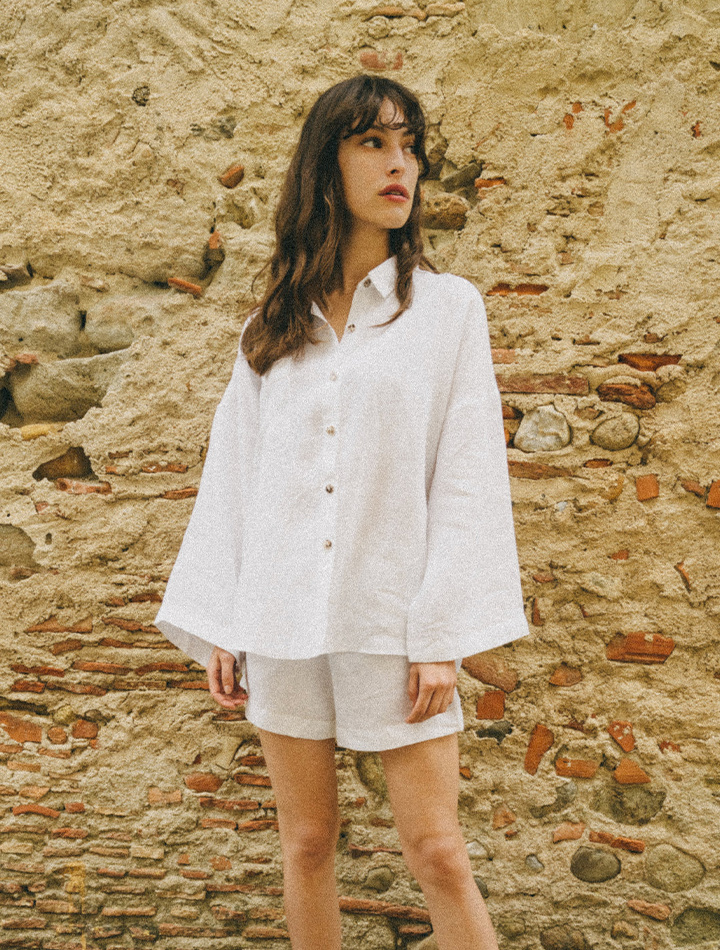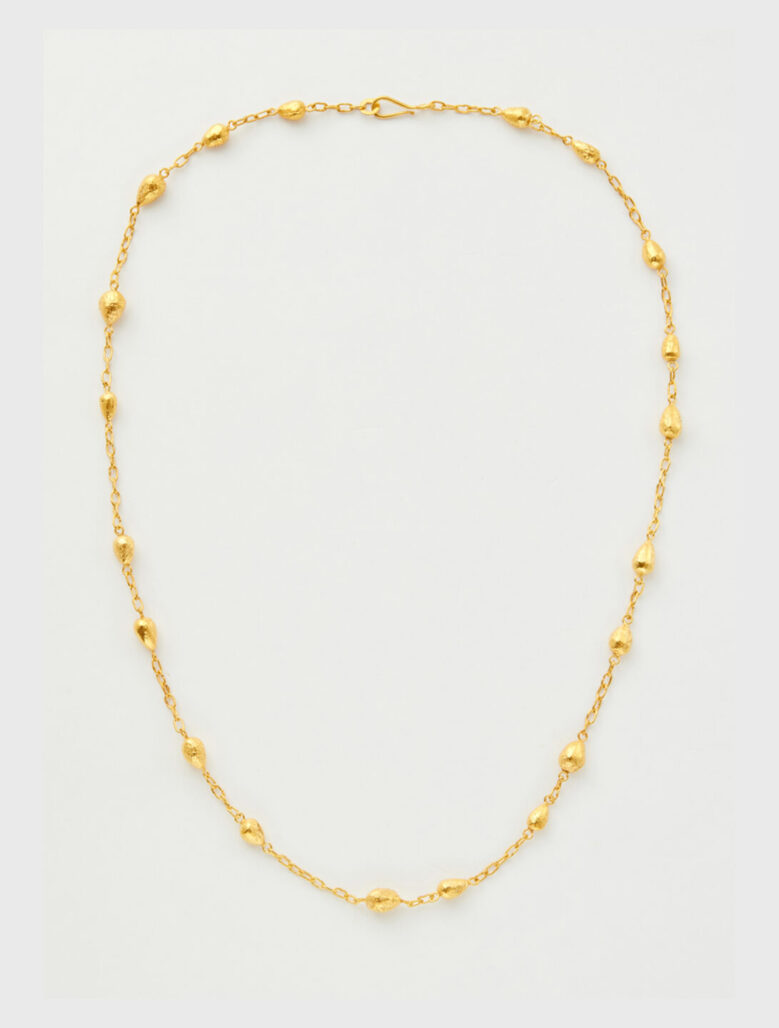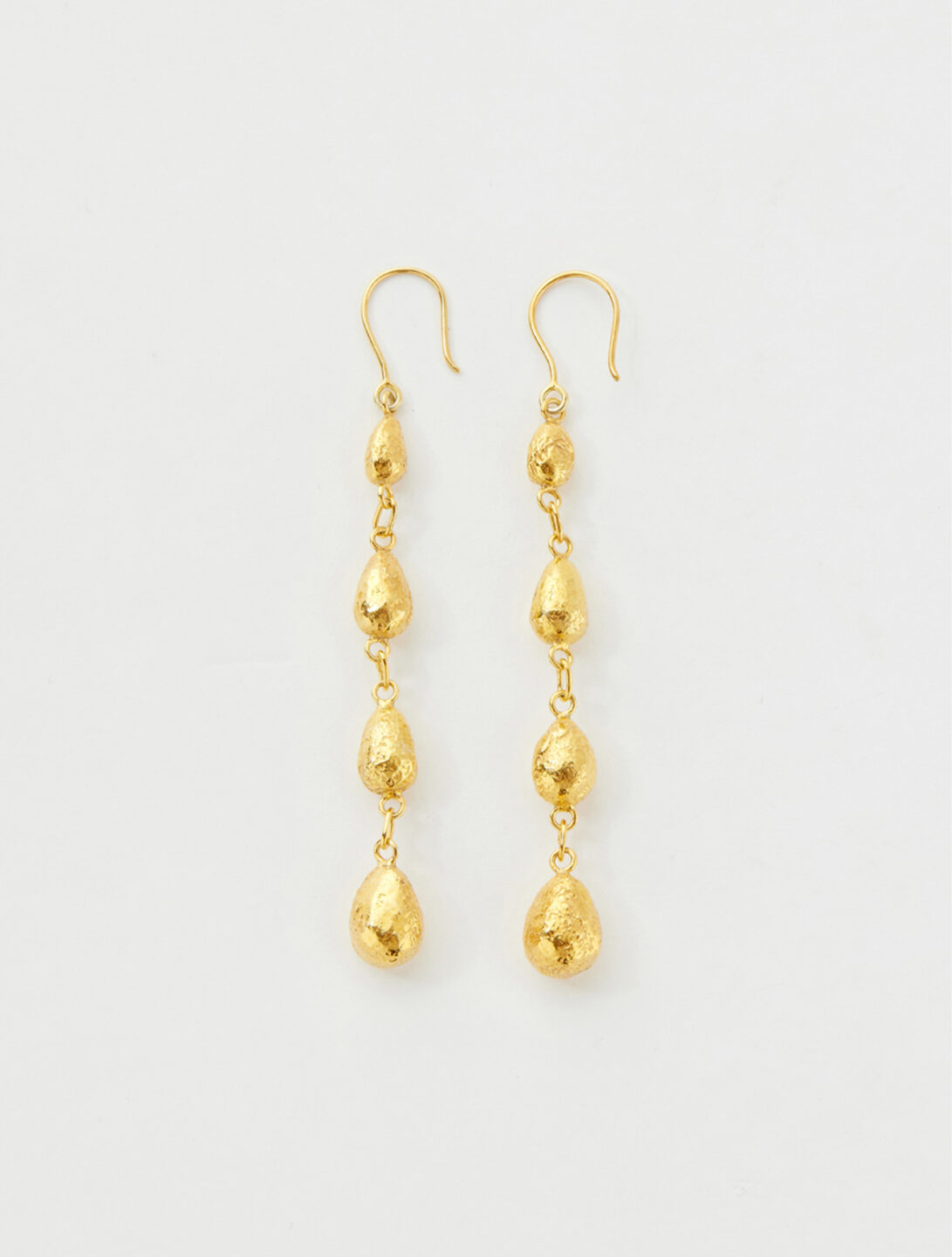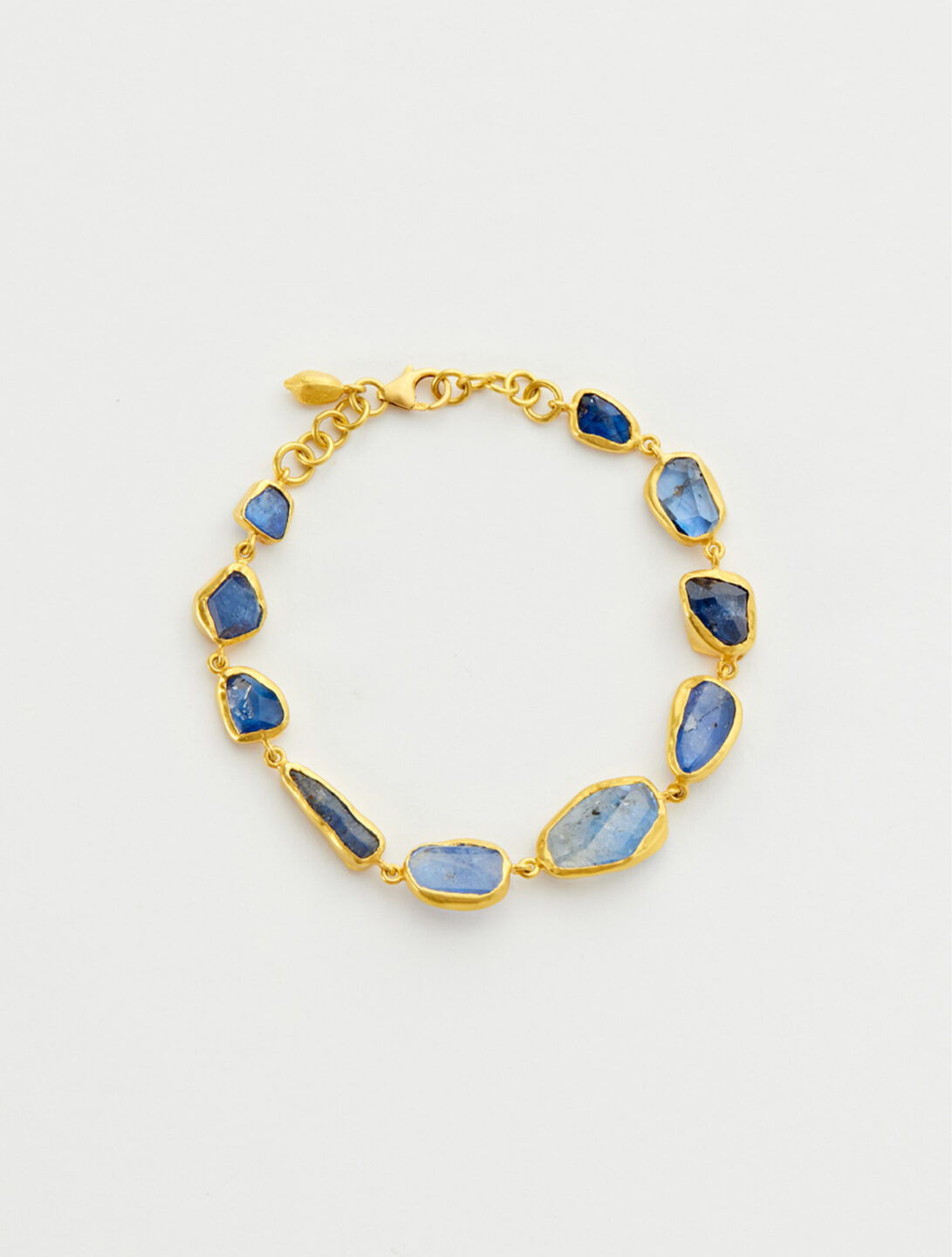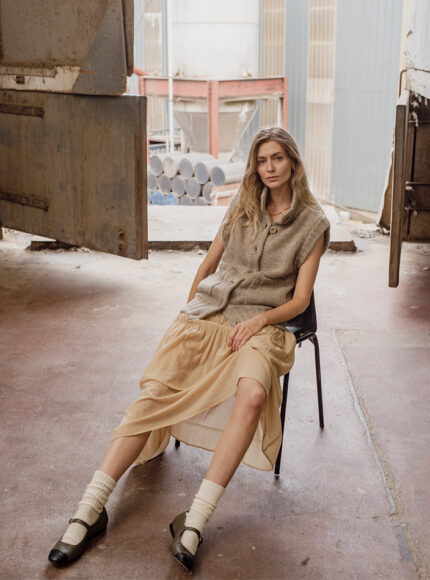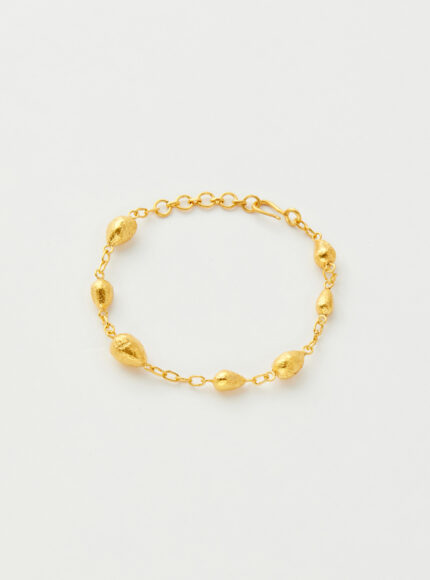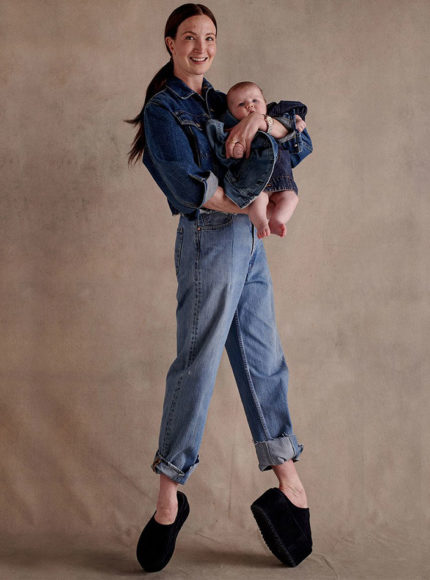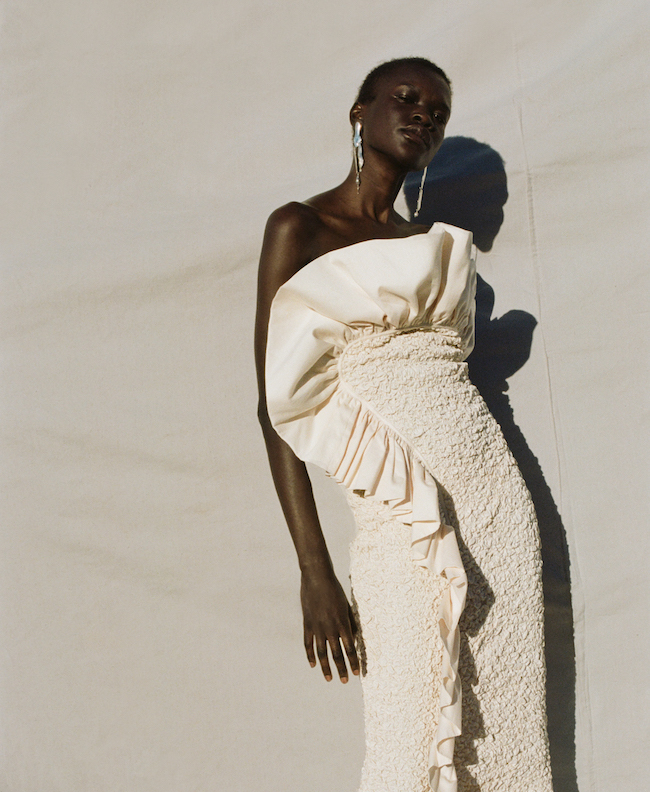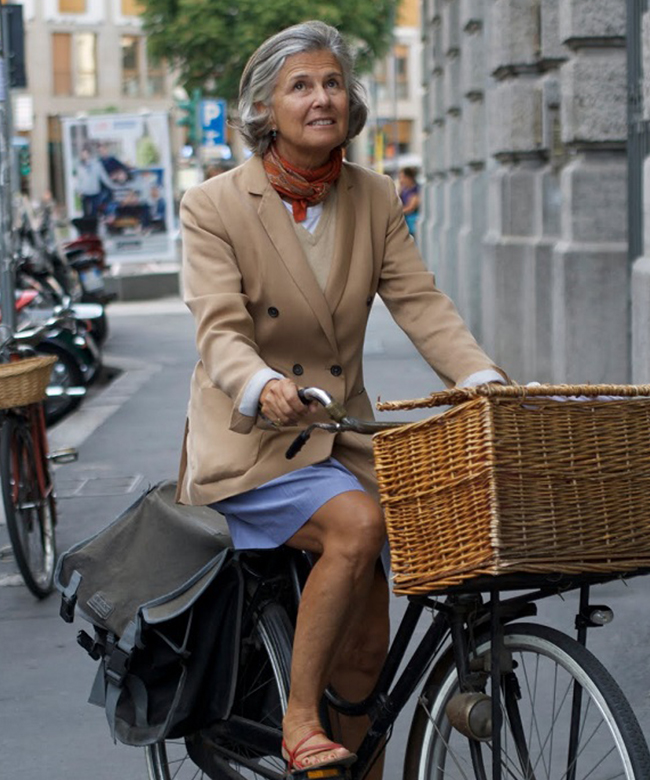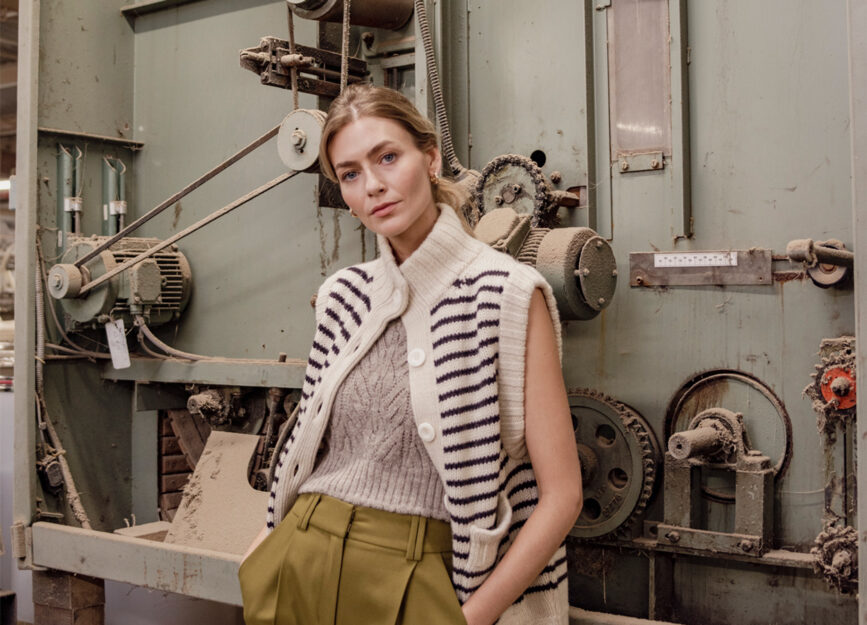
@herdwear
@elvdenim
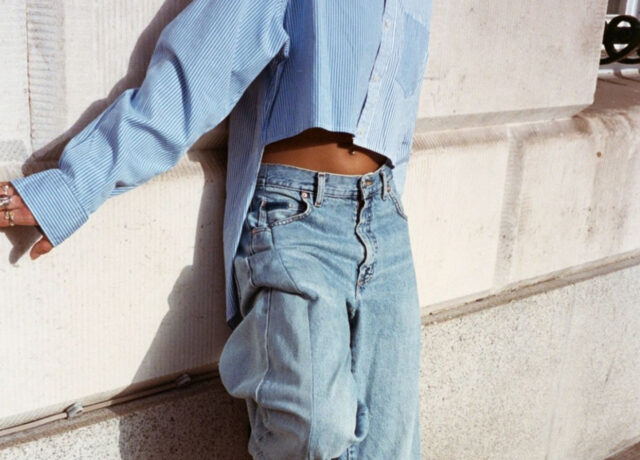
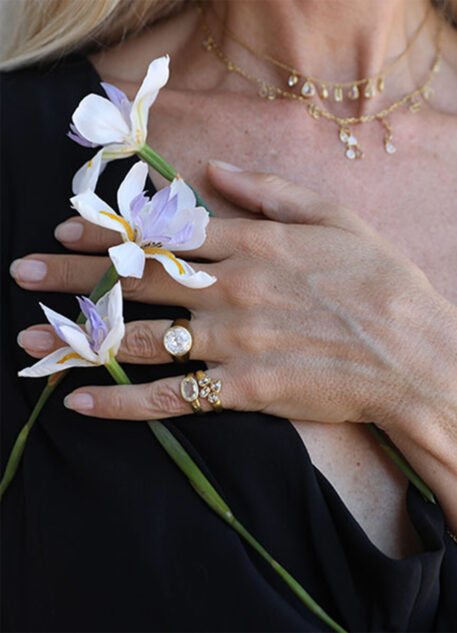
@pippasmalljewellery
Environment
For Fashion Revolution Week We Ask Who Made Our Clothes
For Fashion Revolution Week we showcase some of our favourite sustainable brands and designers. And the inspiring stories behind them. Each brand we feature embodies our commitment to sustainability, ethical production and social responsibility.
About Fashion Revolution Week
Fashion Revolution Week aims to raise awareness about the environmental and social impacts of the fashion industry. It advocates for a more sustainable and ethical approach to fashion, production and consumption. You may have heard of the social media campaign and hashtag #WhoMadeMyClothes. Encouraging consumers to ask questions about the origins of their clothing. And the conditions they were made in, promoting transparency and accountability throughout the fashion industry.
Here at Rev, transparency is at the core of our values. We advocate for traceability throughout all supply chains. The brands we stock maintain close relationships with their suppliers, local artisans, and skilled craftsmen. Ensuring complete transparency and accountability in their ethical production processes.
We thought this was a fantastic opportunity to showcase some of our favourite sustainable brands and designers. And the inspiring stories behind them. Each brand we feature embodies our commitment to sustainability, ethical production and social responsibility.
ELV Denim
ELV Denim believe that we can as a collective make a difference in a world of overconsumption. They champion slow fashion, craftsmanship and attention to detail. Designed and produced in East London, ELV denim uses local factories and ateliers. Keeping the carbon footprint to a minimum, while supporting local communities.
ELV denim was born from a desire to correct the fashion industry’s wrongs and challenge convention. Founder Anna Foster, witnessed first hand the large-scale overconsumption in the fashion industry through her role as a stylist. She realised the potential of up-cycling and fabric-first curated sourcing in meeting the demand for design-led luxury fashion whilst being kinder to the environment.
More on ELV Denim
Each piece is unique, has its own story, and is made using 100% upcycled materials. Adhering to an ethos of zero waste, the material used has zero impact on the environment. The fabric is sourced from preloved discarded denim and transformed into modern sophisticated designs, offering a second life to garments destined for landfill. Denim is renowned for its hard-wearing and long-lasting properties, meaning these discarded garments still have plenty of life left in them.
Every jean is hand picked, sorted and paired by hand, by Anna and her small team in East London. Ensuring every piece is quality checked and that they are happy with the gradient of colourway. The jeans are then cut by hand and made using traditional denim methods. With the environment in mind, the production of ELV Denim jeans only uses 7 liters of water. A stark comparison to the 7000 liters typically required to manufacture a brand new pair of jeans.
HERD
Pioneering the way in the luxury yarn and knitwear sector. HERD offers a beautiful line of knitwear crafted from regenerative wool. It is locally produced through an entirely traceable process. From soil to skin within 150 miles of the sheep farms used.
Ruth Alice Rands, an activist entrepreneur, founded HERD along with another successful business. Both of which champion regenerative natural resources and the landscapes, animals and people that make them. With her first business being based in the food industry, she has now brought her understanding of supply chains, traceability, labeling and certifications to the fashion textiles system, her first love, starting with wool, through HERD.
More on HERD
The journey of a HERD garment follows strict methods that adhere to a well planned, materials and placed-based approach. HERD fosters local production systems and has built relationships with a collective of farmers, graders, scourers, spinners and dyers in one bioregion. This supports Ruth’s vision of a circular, regenerative fashion ecosystem. A network of naturally occurring resources, processed without chemicals and fully composable at the end of their long life. The collective of these farmers and craftspeople means rural communities are supported while ensuring fibers are grown and farmed naturally. Under the best conditions.
Featured here is The Ingleton Gilet In Ecru & Anthracite Stripe. Made using their signature Upland Yarn from 100% Bluefaced Leicester fleeces. These are made within just 150 miles of the farms in Yorkshire, North West England. Where the climate provides perfect conditions and abundant rich green grass. The doubled-up collar, deep armholes, pockets and great big buttons add to its cosy, utilitarian and yet casually elegant appeal. The buttons are made from nuts and the labels are made from 100% cotton, so the knit is fully circular.
A Perfect Nomad
A Perfect Nomad is an ethereal line of resort wear that is as luxurious as it is ethical. They use only natural fibres such as organic peace silks that are entirely cruelty free and GOTS certified organic cotton. Every design seeks to embody craftsmanship. Uusing local artisans who hand make every item through traditional techniques like hand dying and block printing. These beautiful pieces have a bohemian touch which emulates a timeless beauty. Unaffected by trends, A Perfect Nomad will be with you season after season.
Drawn to places of magic and energy, founder Frances Clark, lives in Ibiza. Where she designs the pieces from her home studio. Inspired by the island’s rugged elements. And a lifestyle of simplicity and deep connection to nature. She finds motivation in the slower pace of life and its simple pleasures.
Her focus is on design that is timeless and environmentally conscious. All collections are ethically made through a transparent supply chain. Frances believes we can and should improve the lives of the people we touch, so works closely with small communities, championing and conserving traditional ancient techniques while using handwoven fabrics.
More on A Perfect Nomad
A Perfect Nomad is partnered with The Women’s Empowerment Charity in India. Furthering their commitment to community support by improving the lives of girls and their families. A percentage of each piece’s profits contributes to the funding and development of their own educational centers in economically disadvantaged communities.
Handwoven from 100% organic linen, The Bora Bora Dress is the perfect easy to wear go-to for every occasion. Its simple silhouette and plunging necklace channels a timeless, delicate feminine aura, a staple for any sustainable wardrobe. By using only natural fibers, A Perfect Nomad eliminates the use of synthetic materials in their collections which are kinder to your skin and the planet.
Fawn and Freda
Fawn and Freda embodies a love for thoughtful simplicity and easy femininity. As well as a commitment to a way of making, that is kinder both to the planet and the people. Each piece, rooted in traditional craft, is proudly handmade in London using only natural fibers. With this, they are committed to treating everyone in their journey with respect and fairness. While supporting and sustaining craftsmanship and lightening their footprint. All pieces are made in limited quantities. With the belief in consuming, wasting less and adapting a slower way of living.
Fawn and Freda is designed by founder Poppy Totman. A womenswear and embroidery designer who spent her career with various fashion brands around the globe. Here, she visited some upsetting factories which greatly pivoted her thinking about the industry. Following this, Poppy started working for an embroidery studio. Which allowed her to express her creativity and to explore the rich cultures of needlework and heirloom sewing, while working with amazing artisans and small family businesses.
More on Fawn and Freda
The brand was born while Poppy was pregnant with her daughter. It sparked a lot of thinking about the textile skills that are passed down through generations and the ones that are fading out. This was during the height of the pandemic, a period of reflection for a lot of people. For Poppy, it shone a light on the fast pace of life. The excess and waste, as well as the cost to people’s welfare and the planet. With this, she wanted to join forces with those pursuing a better future for the planet and its people.
One of our favourite pieces by Fawn and Freda is the Freda Lounge Set in Embroidered Linen. This oversized soft white linen shirt with wide sleeves and matching relaxed shorts, are made to be worn together. Or apart, day or night. It features thoughtful detailing which includes delicate blanket stitch embroidery on the pocket and shirt. And short cuffs, cypraea shell buttons and natural cotton linen drawstrings. Linen is naturally one of the most sustainable fabrics. It grows well without needing copious amounts of water and pesticides. It’s also incredibly durable, long lasting and gets softer as time goes by.
Navygrey
Navygrey’s collection of knitwear and sweaters are designed to last a lifetime, and are natural, renewable and biodegradable. Using handpicked superfine wool that is Woolmark certified – each raw fiber can be traced back to the farm that produced it. Founder, Rachel Carvell-Spedding has spent years endeavoring to find another version of her mothers favourite jumper. A classic, navy lambswool with a round neck. Since she couldn’t find a jumper that felt that good, she’d have to make her own. Rachel wanted to recreate the sensation when you pull on your favourite jumper. A jumper that could be smart and relaxed, timeless and elegant, but most importantly, traceable. From sheep to sweater.
More on Navygrey
Navygrey have built relationships with, and work closely with three factories here in the UK and two in Portugal. Their superfine wool comes from the softest sheep in Australia, New Zealand and South Africa. And are now working with wool sources from farms in the North of England. 80% of their pieces are now made in the British Isles with their principle wool spinners based in Scotland, Yorkshire and a small amount of wool-spinning in Italy.
Navygrey work with British and European suppliers that are committed to continuous improvement in manufacturing. Their Scottish mill, Todd & Duncan for instance have a pioneering cyclical process. So that the water used for washing and dyeing the wool can be cleaned and purified so that it can be returned to Loch Leven.
Pippa Small Jewellery
Our final brand featured is Pippa Small, an ethical jewelry designer from London. Despite the editorial’s focus on ‘who made my clothes,’ we thought Pippa’s behind-the-scenes work was too remarkable not to share. Since childhood, she has been making jewelry, collecting pebbles, beads, and shells for her bracelets. Through her family travels, Pippa became captivated by diverse cultures and the people she encountered.
Pippa Small gives communities a re-found respect for traditional design. A sense of self-confidence, pride in their creations and a path towards economic independence through artisanal production. Each piece is handmade by artisans through one of the many foundations and communities she works with across the world. This includes – the arts foundation, Turquoise Mountain in Afghanistan, Myanmar and Jordan.
More on Pippa Small
Featured above are two pieces from Pippa’s Turquoise Mountain Collection. Where she works with the skilled artisans of Afghanistan, respecting their craftsmanship, heritage and traditions.
Artisans in Afghanistan have faced fear and uncertainty about what the future will hold, due to a ruthless combination of crises from drought, covid and the regime change. Leaving many struggling to survive. The Turquoise Mountain Foundation, founded in 2006, has worked to revive traditional arts. And has since transformed the lives of residents in Murad Khane, where the area was run-down, addiction was rife and there were few job opportunities.
Employing over 400 local men daily, the foundation provides training in restoration and construction. Building a cultural, educational and economic hub. The community now has many amenities, and an institute of Afghan arts and architecture that teaches English and Business skills and in its new design center, they have trained over 6000 artisans.
In awe of Turquoise Mountain’s achievements, Pippa visited Kabul in 2008 and began collaborating with a workshop. She worked with the first group of employed women graduates, who produced unique jewelry inspired by Ancient Afghan and Turkman design. Through this collaboration, Turquoise Mountain ensures safe and sustainable livelihoods for local creators, fostering creativity and pride in the culture. Pippa continues her journey. Exploring jewelry-making techniques and reviving traditional skills in communities across Central and South America, Southern Africa, Asia, and the Middle East.
Nila, the Sankrit meaning for blue, is a collection that explores shades of blue from teal to a deep midnight sky. For this collection, Pippa worked with Burmese Sapphires from a family-run mine in Mogok. These pieces, featured below, are handmade by talented artisans in Jaipur, India, such as Om Prakash. Om was the son of a farmer, and learnt stone cutting when he was young. He first specialized in carving crystal Gods for the temples. But now runs a small workshop in Sanganer, just outside Jaipur.
Summary
By learning more about the inspiring stories behind the brands who curate these beautiful collections, we can cultivate a deeper sense of connection between designers and consumers and greater appreciation for the work and care that goes into producing them.
Offering transparency and traceability throughout a brand and their ethical production processes is essential for consumers to have greater confidence that they’re supporting brands that align with their values. By doing so, we can advocate for change, fostering a shift towards a fashion ecosystem enriched with integrity, purpose and responsibility.
Follow @revenvert for more content like this













